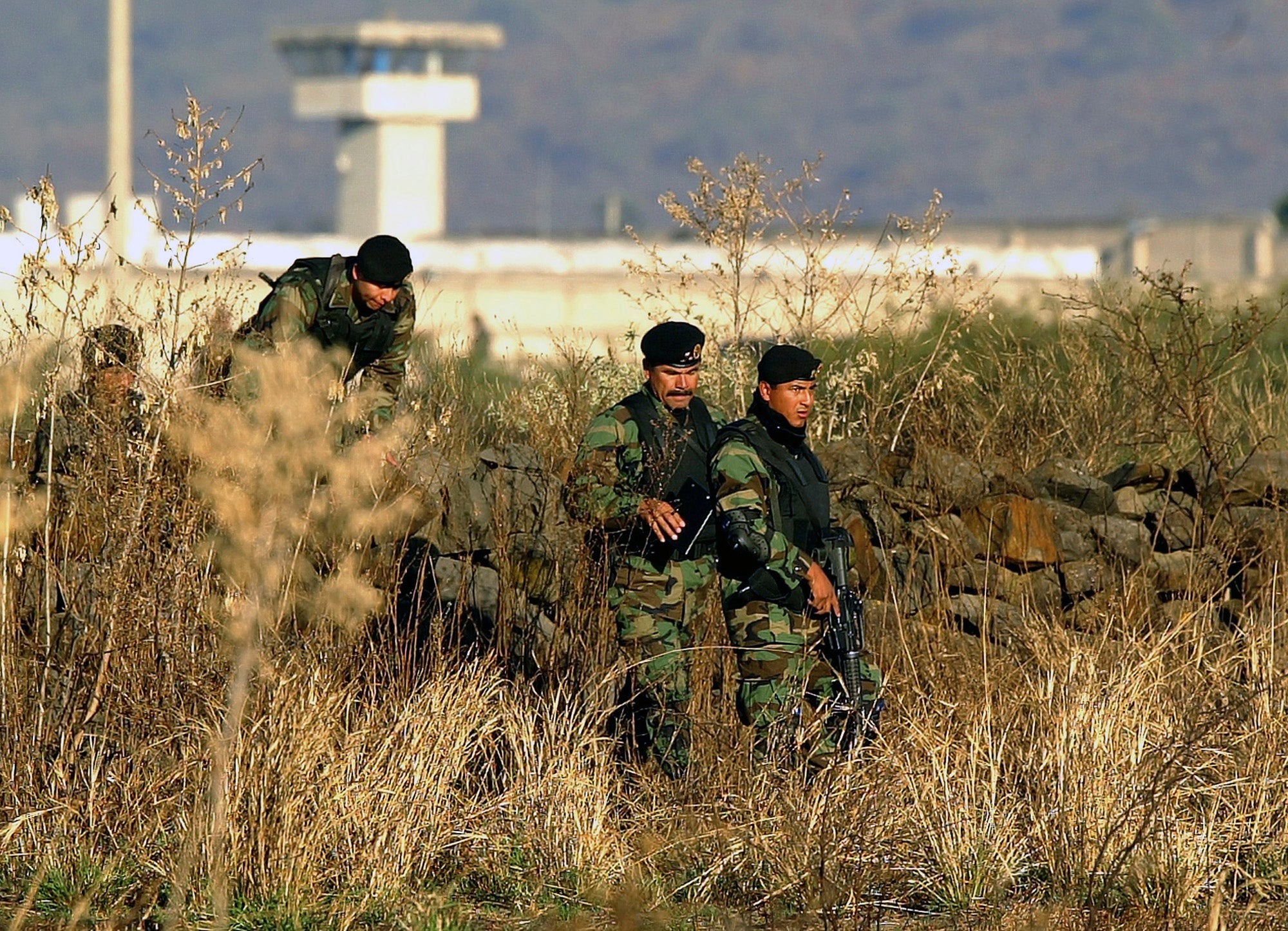Official: Mexican prison was controlled by Jalisco cartel
Mexico’s top security official has announced what many Mexicans had long suspected: the Jalisco drug cartel had long controlled the infamous “Puente Grande” federal prison where convicted drug lord Joaquin “El Chapo” Guzman staged his first escape in 2001

Your support helps us to tell the story
From reproductive rights to climate change to Big Tech, The Independent is on the ground when the story is developing. Whether it's investigating the financials of Elon Musk's pro-Trump PAC or producing our latest documentary, 'The A Word', which shines a light on the American women fighting for reproductive rights, we know how important it is to parse out the facts from the messaging.
At such a critical moment in US history, we need reporters on the ground. Your donation allows us to keep sending journalists to speak to both sides of the story.
The Independent is trusted by Americans across the entire political spectrum. And unlike many other quality news outlets, we choose not to lock Americans out of our reporting and analysis with paywalls. We believe quality journalism should be available to everyone, paid for by those who can afford it.
Your support makes all the difference.
Mexico's top security official announced Thursday what many Mexicans had suspected: the Jalisco drug cartel had long controlled the infamous “Puente Grande” federal prison where convicted drug lord Joaquin “El Chapo” Guzmán staged his first escape in 2001.
The prison had become known for such lax standards that it earned the nickname “Puerta Grande,” or “Big Door.”
Public Safety Secretary Alfonso Durazo said “it was a myth that it was a high-security prison.” The penitentiary in the western state of Jalisco was actually ruled by the cartel of the same name, which is often known by the initials “CJNG.”
“For inmates who belonged to the CJNG, being at the Puente Grande prison meant having all the conditions to continue ruling themselves, and part of the goal is precisely to disperse these criminals among other prisons to eliminate the possibility of them repeating their self-rule.”
On Monday, the federal Public Safety Department, which Durazo leads, announced it was closing the prison but did not give a specific reason, other than saying it was part of a modernization effort to ensure prisoners’ rights and rehabilitation, and a government cost-cutting campaign.
The department said Monday all inmates currently at the prison will be transferred to other facilities. The complex, near the western city of Guadalajara, also houses at least one other state prison; it was not clear if that would remain open.
Guzmán was serving a 20-year sentence when he escaped from the prison in 2001, purportedly in a laundry cart. According to other versions, he simply paid off prison staff and walked out.
Guzmán would remain on the lam for another 13 years before being re-arrested and escaping another Mexican prison through a tunnel. He was finally re-apprehended, extradited to the United States in 2017 and sentenced to life behind bars in 2019.
The Puente Grande complex continued making news earlier this year. In May, inmates fought each other with fists and guns at the prison, leaving seven prisoners dead and nine wounded.
Officials did not explain how the inmates got the two guns used in the fight. Of the seven dead, three were shot to death and four were beaten to death.
The killings followed a prison baseball game, but it was not clear if that was related to the dispute. Nor was it clear if allegiance to rival drug gangs could have been involved in the dispute.